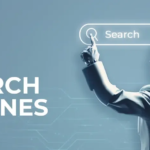There are screens everywhere, let’s face it. Our lives are dominated by our phones, laptops, and tablets from the time we get up until we go to bed. Technology has undoubtedly made life easier, but it has also resulted in higher levels of stress, anxiety, and mental exhaustion than in the past. First, let’s talk about the phrase “digital detox,” which has been popular for a while. Is cutting back on screen time a wellness trend, or does it help mental health? Let’s investigate and find out.
The Rise of Screen Dependency
Because we live in a digital age, screens are a part of our everyday lives. According to studies, the average person looks at screens for more than seven hours every day. Our eyes are almost always on digital gadgets, whether we’re browsing Instagram, responding to work emails, or binge-watching the newest Netflix series.
The worst part is that we aren’t benefiting from all that screen time. Indeed, it has been connected to numerous mental health conditions, such as:
An increase in anxiety and stress
- Insomnia and sleep issues
- Depression and mood swings
- Shorter attention spans
- Lower self-esteem (thanks, social media!)
It’s understandable why people are discussing digital detoxes in light of these dangers. However, what are the precise advantages? Let’s dissect it.
Benefits of a Digital Detox for Mental Health
Reduced Stress and Anxiety
- Have you ever had the impression that your phone is beeping nonstop with emails, updates, and notifications? Isn’t it exhausting?
- You may put all of that noise on hold by engaging in a digital detox.
- You may relieve tension and anxiety by taking a break from devices and allowing your mind to relax.
Better Quality Sleep
- Fun fact: the hormone that promotes sleep, melatonin, is disrupted by the blue light from screens.
- Reducing screen time can help you go to sleep more quickly and wake up feeling more rested, especially right before bed.
Enhanced Focus and Productivity
- Let’s be real—multitasking between screens, notifications, and messages is a productivity killer.
- A digital detox lets your brain focus on one thing at a time, boosting your concentration and efficiency.
Improved Mental Health
- There are advantages and disadvantages to social media. Although it keeps us connected, it also promotes negative comparisons.
- You may reduce feelings of jealousy and FOMO (Fear of Missing Out) by concentrating on your own life rather than scrolling through picture-perfect feeds.
Enhanced Relationships in Real Life
- Isn’t that ironic? While technology has facilitated communication, it has also increased our sense of disconnection.
- A digital detox promotes in-person encounters, which aids in the development of more meaningful and profound connections.

Increased Mindfulness and Mental Clarity
When you’re constantly scrolling, your mind doesn’t get a chance to rest. Reducing screen time helps you become more conscious, be more present, and improve your brain clarity. It’s similar to pressing the brain’s reset button.
How to Successfully Adopt a Digital Detox
Are you prepared to try it? The following useful advice will help you cut back on screen time without feeling like you’re missing out:
Establish Screen Time Limits
The majority of smartphones come with built-in tools that allow you to monitor and set screen time limits. Make use of them! Set boundaries for social media and entertainment apps to keep your usage in check.
Create No-Screen Zones
Designate certain areas of your home—like the bedroom or dining table—as screen-free zones. This encourages healthier habits and better sleep.
Make Time for Regular Rests
According to the 20-20-20 rule, look at something 20 feet away for at least 20 seconds for every 20 minutes you spend in front of a device. It’s an easy method to lessen mental exhaustion and eye strain.
Take Part in Offline Activities
Replace screen time with reading, working out, meditation, or taking up a new activity. It will improve your mental well-being and reduce your dependence on electronics.
Disable Superfluous Notifications
The biggest source of distraction is notifications. Turn off unnecessary alerts to take back control of your online behavior.
Schedule Tech-Free Time
Set aside specific hours of the day as screen-free periods—like the first hour after waking up and the last hour before bed. It’s a great way to create a healthier routine.
Read More: New FASTag Rules 2025: Key Changes, Penalties & How to Avoid Fines
Conclusion
Finding a better balance with technology is the goal of a digital detox, not completely giving it up. Reducing screen time can help you focus better, sleep better, feel less stressed, and build stronger connections. It all comes down to making tiny changes to restore your mental health.
Are you prepared to disconnect and refuel? See how a digital detox might improve your mental health by starting simple and setting reasonable goals. Your mind will appreciate it, I promise.










